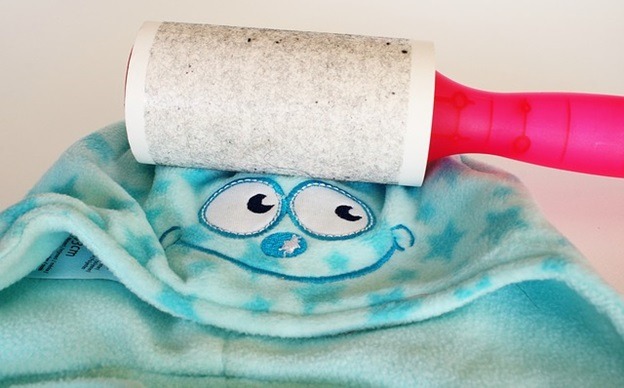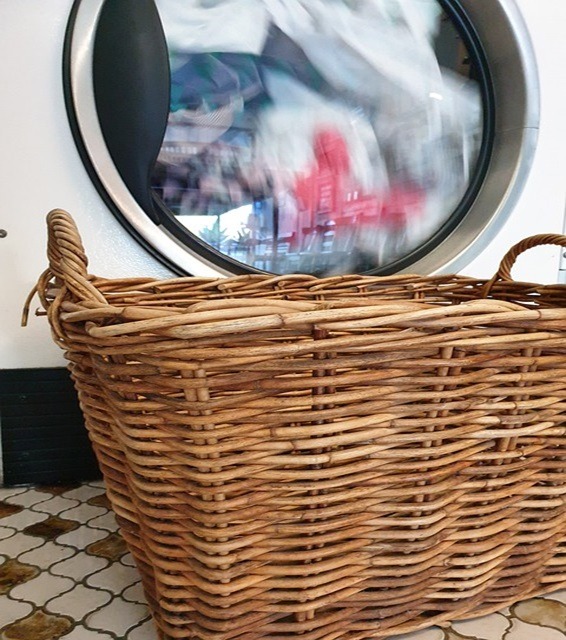For most of us, laundry is not generally one of the favored household chores. We typically wait until the end of the week and do our week’s worth at one time. Luckily for me, that’s only for two people, so it’s not a massive amount. Some people overload, a tremendous problem for the dryer and with lint.
The dreaded part is waiting the final hour while the clothes tumble in the dryer, typically on the warmest setting, in hopes there’s no need to redo the process. What do you do, though, when the buzzer goes off but the clothes are still soaking wet?
That is often the sign of trouble, ultimately leading to significant problems if you don’t tend to the issue. The dryer’s ventilation lines are the least maintained home ventilation system, creating a threatening hazard.
These appliances are responsible for producing a load of lint. Yes, each option comes with its own lint catcher. You can imagine from the tiny size how little these devices are genuinely gathering.
The vent lines clog over time with significant amounts of lint if not cleared of the material, preferably using a trusted professional service in the Frederick, MD, area like Real Clean Air at the very least annually. Not doing so puts your home at risk for a dryer fire. Related statistics are astounding. Let’s dig in.
Do’s & Don’ts Of Dryer Use And Vent Cleaning In Frederick MD
Disasters relating to dryer vent fires are preventable, with many solutions being budget-friendly. There are many things homeowners in Frederick should do and a few things you want to avoid when it comes to keeping your dryer vent lines clear of dust and lint. Let’s look.
Do’s
Screen: A lint screen fits each dryer meant to catch the material from each load of laundry done. That needs cleaning both before you dry and after drying every load. A lot of people tend to wait until it’s clogged to clean it. Don’t do that.
Professional Service: The vents should have a professional cleaning service, particularly if you’re noticing it takes more than one cycle to dry your loads entirely. That means there is a significant accumulation of lint requiring a substantial cleanup.
Electric Connections: Check the electrical connections for the dryer to ensure these are correct and make sure they’re plugged in correctly.
Vents: Inspect behind the machine for clogs in the vent there and with the outdoor vent opening to look for possible nests, pests, wildlife. Often larger animals can attempt to crawl into the house through these areas, become stuck, and die. It presents an incredibly offensive odor, leads to inefficient machine operation, and a lint build-up blocked in there. Read here for cleaning tips.
Don’ts
- Overload: A dryer should never get overloaded with a massive amount of clothes. Many people assume this will save energy, time, and cost. It’s actually counterproductive since these often require extra cycling and more dry time, plus doing this can wear out a machine’s motor.
- Absent: Avoid leaving equipment running when you’re not home or at night when you’re sleeping. If the machine were to catch fire, there could be significant injury or a fatality, not to mention the loss of your property.
- No Screen: If the machine you have doesn’t have a lint catcher or it’s in any way damaged or fits loosely, replace the dryer. Without that tiny part, all that material goes directly to the ventilation line heightening your hazard.
Final Thought
Neglecting the dryer vent is a common oversight in most Frederick households or letting it accumulate until it kind of falls off on its own when the screen comes out. The overflow goes straight to the ventilation lines.
If no one checks behind the dryer in that vent or outside in that spot, you could develop a substantial clog. By the time you notice that your clothes aren’t drying properly, you could already be considered a fire risk.
The recommendation for homeowners is to use professional dryer vent cleaning services at least once per year to ensure the lines are clean, clear, fresh, and empty. In this way, you can have peace of mind that your home is safe and secure. It’s just an added layer of household maintenance not unlike other systems we need to upkeep.


